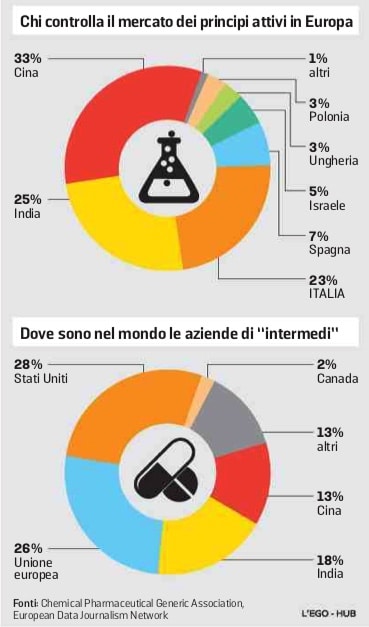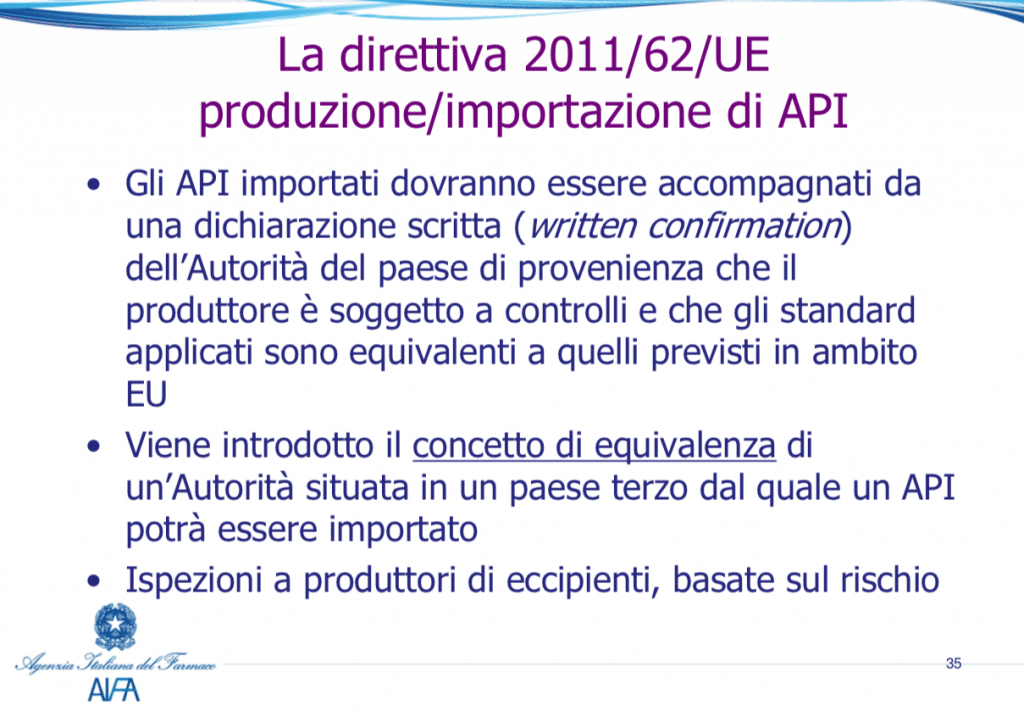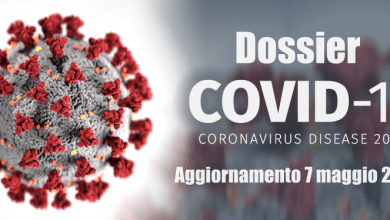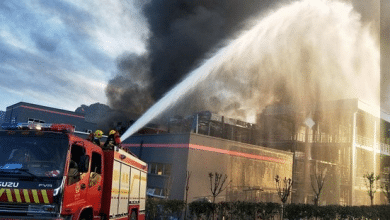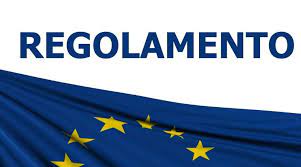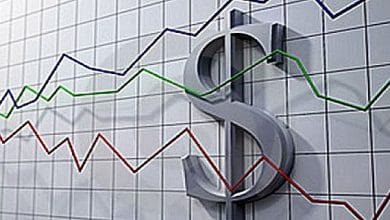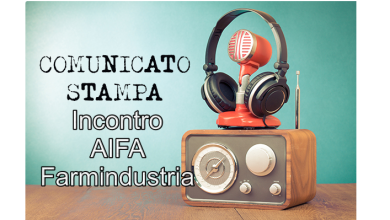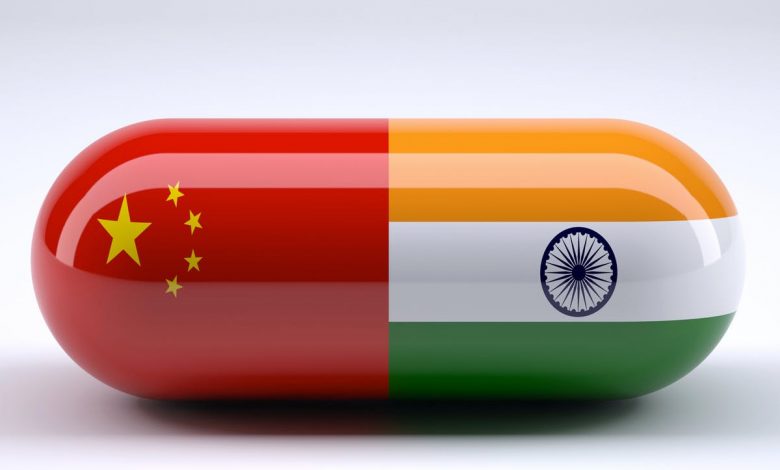
The EU depends on molecules and active ingredients for medicines manufactured by Beijing for 90%. The lockdown blocked exports. The alarm: "Dangerous to leave your health in the hands of others"
A tablet of Tavor contains a milligram of active ingredient that gives our brain the power to calm us down, paracetamol instead of a pain-relieving substance has much more, about 1 gram. Two drugs 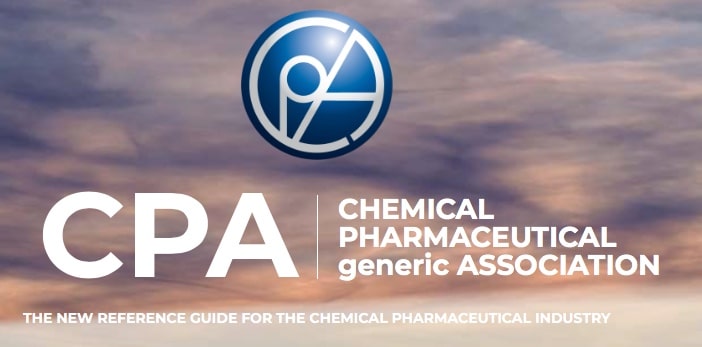 common, widely consumed. Different in use, but which work in the same way: to be effective they need many building blocks, i.e. pharmacologically active molecules, also called «starting materials». (… continue on The Press of August 24, 2020)
common, widely consumed. Different in use, but which work in the same way: to be effective they need many building blocks, i.e. pharmacologically active molecules, also called «starting materials». (… continue on The Press of August 24, 2020)
China has become the world's largest producer of pharmaceutical ingredients since 2000 and covers 60% of the global production of intermediates from which the active ingredients or APIs are then derived. In the European Union, the dependence on China of intermediates is API's 85/90% and 33%. Chinese companies are then protected by the state and enjoy generous subsidies. It is calculated that the intermediates produced vary between 1500 and 2000.
The Covid emergency has led to a supply shortage. The president of Assogenerici himself declared that “Europe has found itself too dependent on China”. The reason is that production costs in China are at least 40% lower than in Western countries.
CPA adds that in China they can afford to produce in dangerous and polluting factories. The price to pay, however, is the quality.
Gian Mario Baccalini, vice president of the European Fine Chemical Group and of Aschimpharma, declared that "if in Italy the guarantee level of APIs is 10, because we are subjected to stringent controls, in China it is 3-4, in India between 2 and the 3”. Let's take an example, continues Baccalini: “One of our antibiotics normally has a purity of 99%, the one that comes from India of 70%. This means that the efficacy of this drug is lower”. And in that 30% of impurities any harmful substances are hidden.
Related news: Coronavirus: Assogenerici, "Stock of active ingredients for at least 3 months of production"
Report, the dirty drug supply chain from India to Italy

